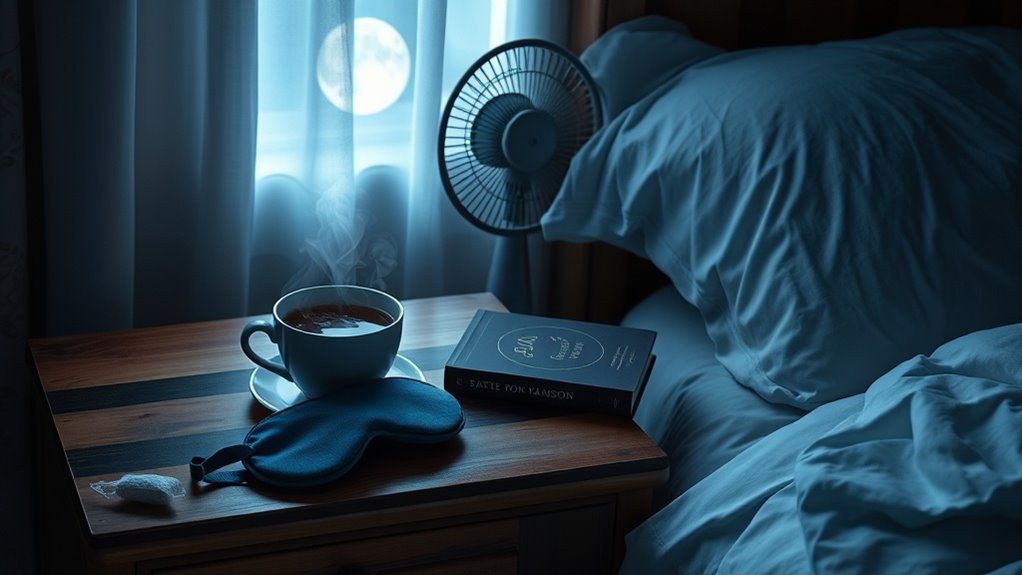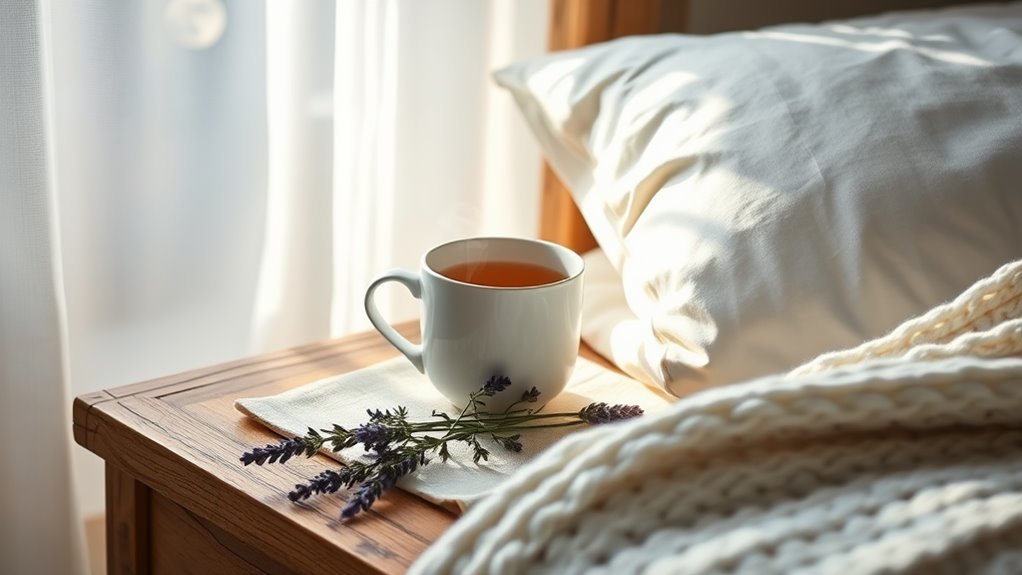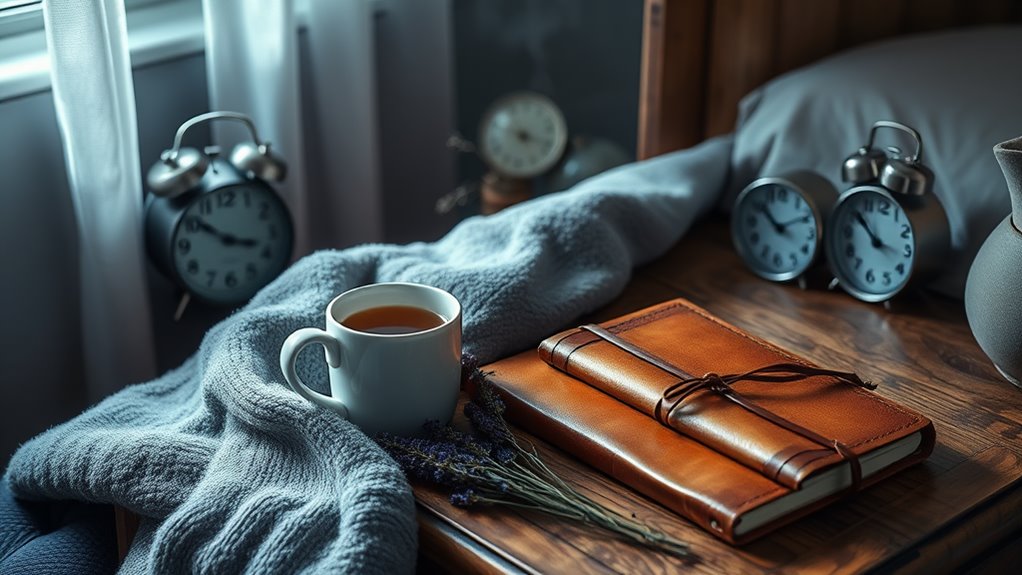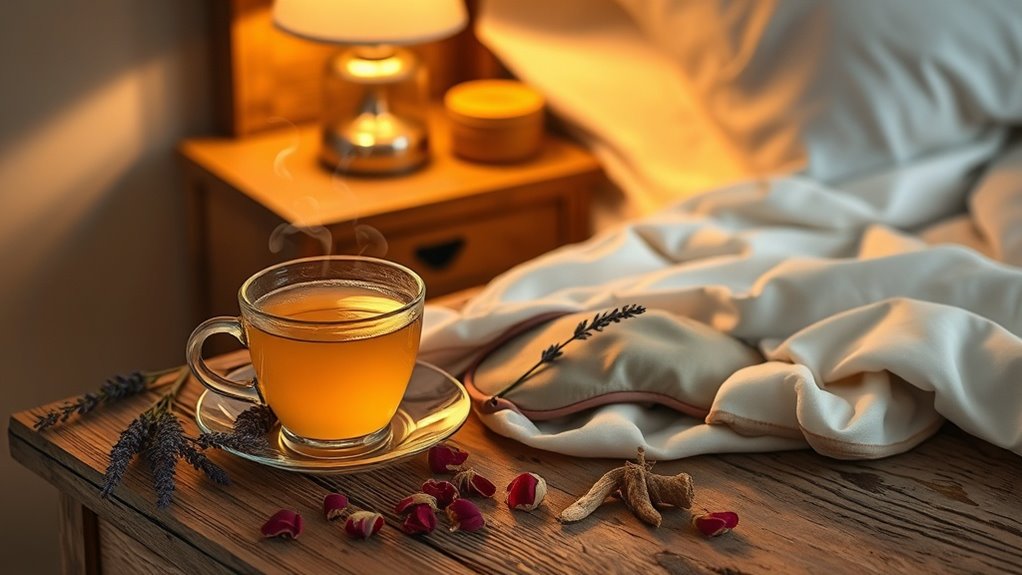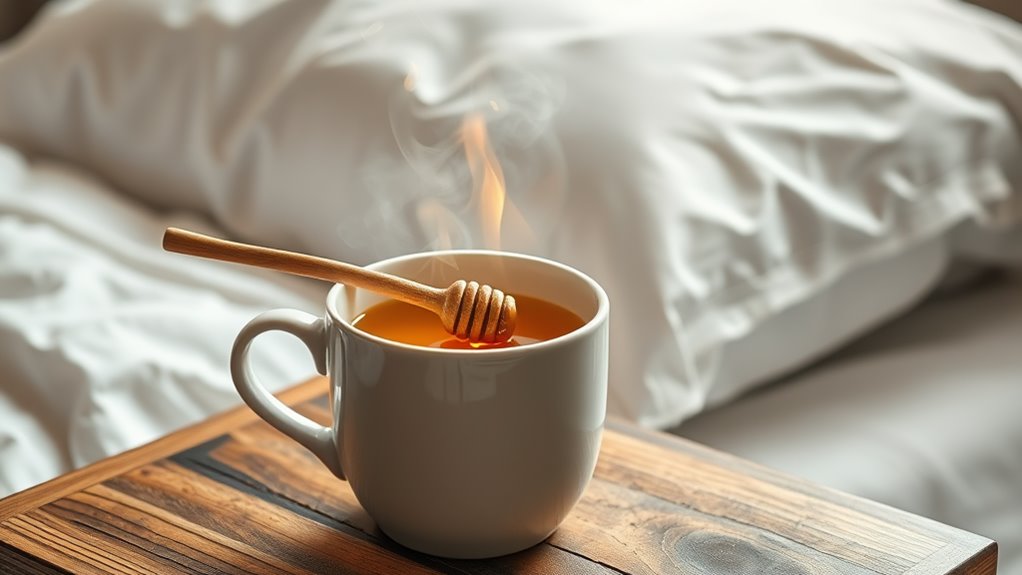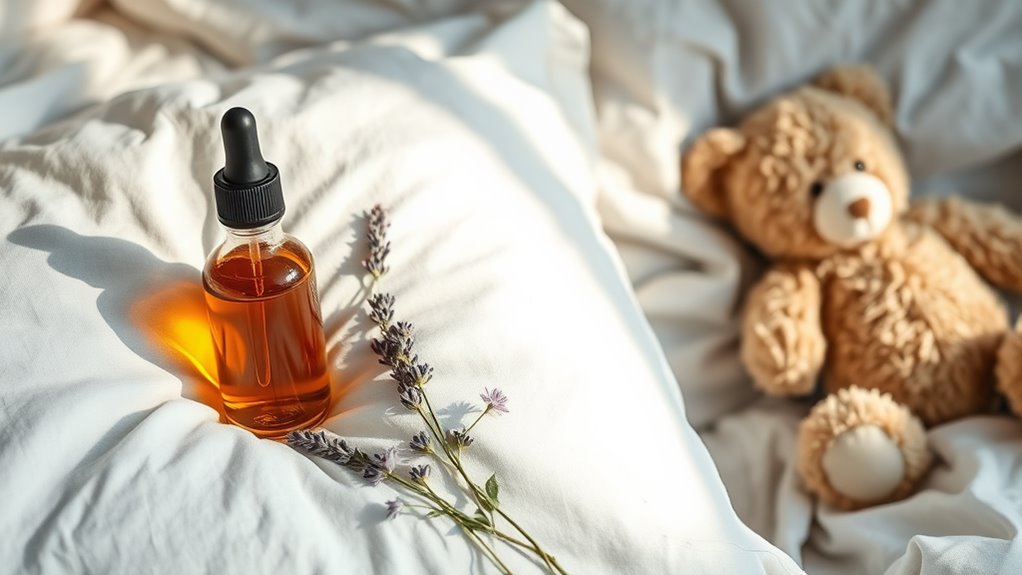What Finally Helped Me Sleep Without Medication
My Battle With Sleep Deprivation
After struggling with insomnia for over a decade, I understand the desperate search for natural sleep solutions. Night after night, I’d lie awake until 3 AM, dreading another day of foggy thinking and exhaustion.
I tried everything from meditation apps to herbal teas, but nothing provided consistent relief. My breaking point came when sleep deprivation started affecting my work and relationships.
That’s when I decided to dive deep into sleep science and natural sleep remedies, determined to find a sustainable solution. Through extensive research and personal experimentation, I discovered evidence-based strategies that finally helped me regain control of my sleep. I learned that magnesium regulates sleep and acknowledged the importance of incorporating it into my routine to enhance my sleep quality.
Breaking Free From Sleep Medication
If you’re ready to break free from sleep medication, you’ll need a strategic approach that includes both natural alternatives and a structured transition plan.
A gradual shift to natural sleep aids like melatonin, valerian root, or chamomile tea can help minimize withdrawal effects while supporting your body’s natural sleep patterns. Incorporating mindfulness and relaxation techniques such as deep breathing exercises and meditation can further enhance the effectiveness of these remedies.
Your healthcare provider can help you create a personalized tapering schedule that safely combines these natural alternatives with lifestyle modifications to ensure a successful transition.
Natural Sleep Aid Alternatives
While breaking free from sleep medication may seem daunting, numerous natural alternatives can help you transition to medication-free sleep.
Start with proven remedies like chamomile tea, valerian root, and magnesium supplements. These natural compounds work with your body’s sleep-wake cycle without creating dependency.
You’ll also benefit from relaxation techniques such as deep breathing, progressive muscle relaxation, and mindfulness meditation.
Consider adding sleep-promoting foods like tart cherries, kiwis, and nuts to your evening routine. Essential oils like lavender and vetiver can create a calming environment when diffused before bedtime.
Building a Transition Plan
Because transitioning away from sleep medication requires a careful, systematic approach, you’ll need a well-structured plan to avoid withdrawal symptoms and rebound insomnia.
Work with your healthcare provider to create a gradual tapering schedule, typically reducing your dosage by 25% every two weeks. Simultaneously, implement your natural sleep strategies, including consistent bedtime routines, relaxation techniques, and sleep hygiene practices.
Track your progress daily, noting sleep quality, any symptoms, and emotional changes. If you experience difficulties, don’t hesitate to slow down the tapering process.
Remember that successful medication withdrawal often takes several months, so maintain patience and stay committed to your plan.
Creating the Perfect Sleep Environment
Your sleep environment plays a critical role in achieving natural, restful sleep without medication.
You’ll want to keep your bedroom temperature between 60-67°F (15-19°C), eliminate light with blackout curtains or an eye mask, and control noise through earplugs or white noise machines.
Investing in high-quality, breathable bedding materials and a supportive mattress will help regulate your body temperature and provide the comfort needed for optimal sleep.
Cool Down Your Room
Temperature plays a crucial role in regulating sleep quality, with research showing that a cool room between 60-67°F (15-19°C) promotes optimal rest.
Your body naturally cools down as part of its sleep cycle, and a cooler environment helps facilitate this process. To achieve ideal sleeping temperatures, use breathable bedding materials like cotton or bamboo, and consider running a fan or air conditioner.
If you’re on a budget, try freezing your pillowcase before bedtime or using a cooling mattress pad.
During warmer months, block out heat by closing blinds during the day and opening windows at night when temperatures drop.
Light and Sound Control
Two environmental factors – light and sound – significantly impact your ability to achieve restful sleep.
Use blackout curtains or a sleep mask to block out artificial light, which disrupts your body’s natural melatonin production.
Even small LED lights from electronics can interfere with sleep quality, so cover or remove them from your bedroom.
White noise machines or earplugs can help mask disruptive sounds like traffic or noisy neighbors.
If you prefer silence, consider soundproofing solutions such as weather stripping under doors or acoustic panels.
Your brain needs a consistent sound environment to maintain deep sleep cycles throughout the night.
Quality Bedding Matters
When it comes to achieving restorative sleep, high-quality bedding plays a crucial role in regulating body temperature and providing proper support.
Choose breathable materials like cotton or bamboo for sheets and pillowcases, which help prevent night sweats and overheating.
Your mattress should align your spine properly and be replaced every 7-10 years for optimal support.
Select pillows that maintain proper neck alignment based on your sleeping position.
A weighted blanket can reduce anxiety and promote deeper sleep through deep pressure stimulation.
Don’t skimp on bedding – it’s a vital investment in your sleep health.
The Power of Evening Routines
Research consistently shows that establishing a reliable evening routine signals your body to prepare for sleep.
Start your wind-down process 60-90 minutes before bedtime by dimming lights and switching off screens. Your brain interprets blue light as daylight, disrupting melatonin production.
Choose calming activities like reading, gentle stretching, or meditation. A warm bath or shower can help – your body temperature naturally drops afterward, promoting drowsiness. Engaging in these practices supports the body’s production of sleep-inducing compounds, further enhancing your ability to drift off peacefully.
Set consistent times for these activities and stick to them. Your circadian rhythm will adjust, making it easier to fall asleep naturally and wake up refreshed.
Mind-Body Techniques That Changed Everything
The mind holds remarkable power over sleep quality through proven relaxation techniques.
You’ll find success with progressive muscle relaxation, starting at your toes and working up to your head, tensing and releasing each muscle group.
Deep breathing exercises, particularly the 4-7-8 method, can quickly activate your parasympathetic nervous system.
Body scanning meditation helps release physical tension while quieting racing thoughts.
Visualization techniques transport your mind away from daily stressors.
Picture yourself in a peaceful setting or imagine a relaxing white light flowing through your body.
These science-backed methods strengthen the mind-body connection and naturally induce sleep. Additionally, 4-7-8 breathing is an effective way to reduce anxiety levels and promote consistent, higher-quality sleep.
Nutrition and Sleep: Hidden Connections
Beyond mental relaxation, your dietary choices play a powerful role in sleep quality.
Research shows that specific nutrients directly impact your brain’s sleep-wake cycle and melatonin production. Understanding these connections can transform your sleep naturally.
-
Tryptophan-rich foods like turkey, eggs, and dairy trigger serotonin release, promoting drowsiness.
-
Magnesium from leafy greens and nuts reduces cortisol and muscle tension.
-
Complex carbs paired with protein 3 hours before bed stabilize blood sugar overnight.
Exercise: A Natural Sleep Aid
Physical activity stands as one of the most powerful natural sleep solutions available, with studies consistently showing that regular exercise can reduce the time it takes to fall asleep by up to 55%.
You’ll get the best sleep benefits by exercising outdoors in the morning or early afternoon, when natural light helps regulate your circadian rhythm. Aim for 30 minutes of moderate aerobic activity like brisk walking, cycling, or swimming. Additionally, engaging in regular exercise can also lead to a better weight management that contributes to physical well-being. Just don’t exercise within three hours of bedtime, as this can increase
Tracking Progress and Building Better Habits
Monitoring your sleep habits through a dedicated journal or sleep-tracking app can transform occasional good nights into consistent, restorative rest. By tracking key metrics and patterns, you’ll identify which behaviors help or hinder your sleep quality.
-
Record your bedtime routine, sleep duration, and wake times to establish baseline patterns.
-
Note daily activities that affect sleep: caffeine intake, exercise timing, and stress levels.
-
Track your energy levels and mood the next day to connect sleep quality with daytime performance.
Commit to reviewing your data weekly and adjust your habits accordingly. You’ll spot trends that enable data-driven decisions about lifestyle changes that support better sleep.

